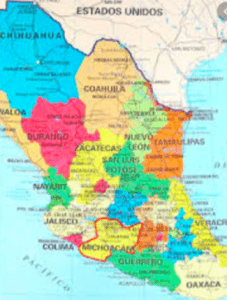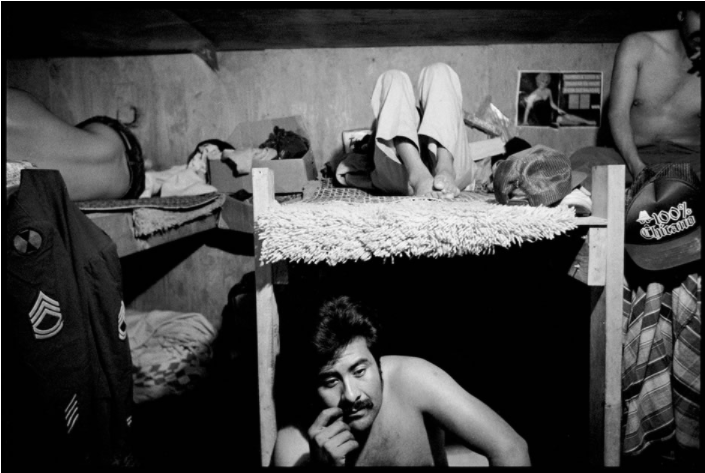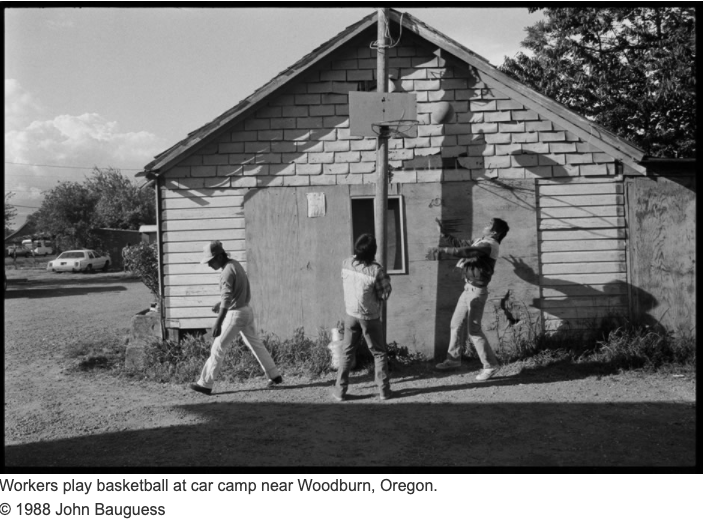Jaime Arrendondo, the talent, age 22, Here I will be sharing events from Jaime’s timeline from Childhood to Adulthood, along with all the accomplishments and obstacles he had to face.
JAIME’S BACKGROUND
Pineros y Campesino Unido del Noroeste (Northwest Treeplanters and Farmworkers United), which is well-known as PCUN. Then, how PCUN becomes the organization that shapes him into the right man for the CEO position at Colaboración Adelantando a Personal de Apoyo para Capacitarnos, Enlazarnos y Solidaizarnos (Collaborative Assisting Personnel to Advance our Capacity, Engagement and Solidarity), also known as CAPACES.. Jaime was born and grew in Las Ranas, Michoacan, Mexico up until the young age of 8, he then moved to Salem, Oregon, US.
JAIME, CURRENT POSITION
Jaime is currently working with CAPACES leadership and here he shares a little bit about what is most recently focused on as his role in the organization.
Jaime was born and grew in Las Ranas, Michoacan, Mexico up until the young age of 8, he then moved to Salem, Oregon, US, with his parents.
As a child he attended elementary school in Mexico, he describes it as an experience that is different compared to the elementary school he attend in Oregon. Jaime states “School’s in Mexico are a lot different than here in the United States, for example if someone had to use the restroom one would have to go outside, behind the school, because we didn’t have any bathrooms in the school” He then goes on about the poverty in schools regarding, teachers, food, and school supplies. In addition, Jaime also brings up the punishing system of school authorities enacted on students if they misbehaved or if they are getting bad grades. Overall, he describes his elementary school experience not fun.
Instead, he would much rather spent his family’s farm and field, working with his grandpa and the animals. Little did he know that later on in life he would become an organizer for tree-planters and farmworkers united.
He describes his pueblo with beauty among the midst of poverty. He entails on the aspect of growing up in Michoacan during poverty and not violence, unlike how it is now in Michoacan, poverty and now violence has been seen throughout the region. He shares stories of his best childhood memories involving his brother and sister as the times that cherishes the most, because those memories were also the reasons why he would strive and be motived to succeed in life, and push the family further.
Jaime admires Mexico despite the underdevelopment of modern day machines, houses, buildings, technology, and pipe systems. He admires Mexico because of its land, food, people, culture, and the overral beauty.
BRACEROS and the Immigration Reform and Control Act of 1986
Jaime’s Dad, was the first to leave Mexico to the United States for work. Jaime’s dad was a bracero, meaning manual laborer, one who works using his arms. The bracero program started on August 4, 1942 under the name Mexican Farm Labor Agreement. The bracero program lasted 22 years, up to 1964, and offered 5 million braceros employment contracts in 24 States becoming the Largest foreign worker program in United States history. This program’s agreement along with other related programs’ agreements and promises were not fulfilled, or satisfied. More than half of the braceros including railroad workers did not receive their promised money into their savings account based in Mexico, from which the U.S government legally guaranteed they will receive.
In a 2018 study, published by the American Economic Review, found that the bracero program didn’t adverse impact on the labor market outcome of American farm workers. Below are authentic picture of braceros living conditions in Oregon.

Since 1962 the US continued to implement other programs in which braceros were the talent that the US Government kept trying to contract. In 1986 under President Reagan, Reagan signed and passed the Immigration Reform and Control Act of 1986, this new law changed the U.S. immigration law, making it illegal to “knowingly” hire undocumented immigrants and enforcing financial and other penalties towards companies that employed illegal immigrants. The act also legalized most undocumented immigrants who had arrived in the country prior to January 1, 1982.
Since the Immigration Reform Act of 1986, like how Jaime explains in his video, it allowed undocumented immigrants to apply for residency. PCUN helped over 1300 immigrants apply for residency under the Act and 98 percent of the applicants were approved by the INS in the 1980s. PCUN has also organized other projects such as “Project To Stop Pesticide Poisoning”, and improving farmworker conditions and wages, this campaign, also known as the “Red Card” campaign. was created after the discovery that cucumber and berry farmers were losing 2 million dollars due to minimum wage violations after Oregon raised its minimum wage before 1990.
COMING TO THE UNITED STATES,
Upon arrival, Jaime, makes his first interaction with an organization named PCUN, at the age of 8-10 years old, later on in life PCUN becomes the first organization that believes in Jaime and begins investing in him, Jaime shares his first interaction while stumbling across each other on the fields during work in his early years of age and in Salem, Oregon.
Addressing, concurring on Jaime’s comments on elementary, middle, and high school in the United States, in Oregon, elementary schools do offer more support for english as second language (ESL) students with help from native or Spanish speaking faulcalty. It has been reported that the number of help for ESL does decrease because the money for the program becomes more limited in middle, and high school, Instead in middle school and high school, schools place non english speakers and ESL students into single class per term or semester and replace it as an elective or required class. Fortunetly for Jaime, Jaime picked up english rather easily along with his older brother, and was great student, floating by graduating high in his class.
JAIME IN COLLEGE,
Through high school Jaime had been on the farms with his older brother and dad, and yet again PCUN had gone to his work offering and providing assistance to farm workers. Jaime then got a job as a beverage boy at Willamette University, not as a student, but as a high school graduate. Jaime sets himself on the right path to a degree, though spending most of his time on campus as worker and around kitchen staff, he also surrounds himself with college students, which aspires him to want to enroll and continue his education at Willamette University.
Willamette University is ranked nationally 213 with Forbes, and 141 with Times and Wall Street Journal. Willamette University is a private university with approximately 2100 students enrolled, between the graduate and undergraduate programs. Below is a chart on the number and percentages of people of color/ethnic students enrolled at the University of Oregon

As you can see, though the Latino population comes in as the second largest group at the University, its still a very low amount Latino students. As well as a very low percentage amount of Latino students graduating with a degree as undergraduate and even less amongst graduates.
PCUN and Willamette University have a good relationship in that Willamette University knows of the increases of Latino population every year. The university and PCUN work with the local Latino population in trying to have more Latinos become successful and to receive higher education.
PCUN, Pineros y Campesinos Unidos del Noroeste (Northwest Treeplanters and Farmworkers United), is by far the largest Latino Union in the sate of Oregon. PCUN was founded in 1977 by Cipriano Ferrel. Ferrel took a chance to create an organization after an increase in immigration raids in Oregon. In short terms, Oregon being in the Northwest, immigrant farm workers had the least protection from US authorities due to having the least amount of representation, most of them were being held up in the southern states due to problems, conflicts, conditions not being meet.
JAIME WORKING WITH PCUN and CAPACES
Jaime now at the age of 22, runs into PCUN for the third time, and this time, he gets offered a job as an organizer and he takes it.
On 2013 Jaime Arredondo gets nominated for Secretary Treasure as Larry’s successor, Larry Kleinman is a co-founder of PCUN and has been the Secretary-Treasurer since October of 1988. Years after working with PCUN, Jaime then becomes the active Directer of PCUN & APP. Following his Directer position with PCUN, he then leads their new “little brother” organization CAPACES as their Executive Director.
Jaime, as wise as he was the that age, decides to step down as director for PCUN and Reyna Lopez steps into the Executive Director position. Rest assure Jaime is healthy and in great condition, Jaime along with many other leaders of PCUN have choose to step down in the past because they followed a motive of PCUN’s mission statement, one must always look to tomorrow, and always maximize strength. Stepping away as CEO for PCUN didn’t stop Jaime from leading and running another organization. This time the orginization that Jaime take the role as Executive in is for CAPACES. CAPACES just so happens to be PCUNS little brother, meaning CAPACES stems of PCUN in that it helps farm worker and field workers with housing and training future leaders for their generation.
CAPACES,
In 2003 the CAPACES network was established uniting nine organizations to promote peer relationships and foster mutual identification as a movement. All organizations serve and organize the Mid-Willamette Valley Latino communities. CAPACES has organized and conducted gatherings, cross training on the practicalities of leadership and the large scale ideas of social change.
CAPACES Leadership Institute is a place where social change leaders of today and tomorrow engage the ideas and values that define our movement and where these leaders can gain the skills to apply them.
The Video clip of Jaime on the very top shares Jaime’s point of view of CAPACES and of his intentions of reaching goals.
Special Thanks To
Jaime Arredondo
Executive Producers
Gabriela Martínez & Lynn Stephen
Producer/Director
Dennys
Camera/Editing
Dennys
Camera Assistance
Name of Assistant(s) if any
Editing Assistance
Dennys
Maps
Maps can be found on Google images of Las Ranas, Michoacan, Mexico
Sponsors
Latino Roots I and II courses (2020) have been sponsored by the Center for Latino/a and Latin American Studies, the School of Journalism and Communication,
and the Department of Anthropology
Special Thanks to
Special Collections and University Archives
The Digital Scholarship Center at the Knight Library
The University of Oregon Libraries
for their support and assistance in archiving all materials related to
and produced in the Latino Roots courses
Community Sponsorship for the Latino Roots project
has been provided by SELCO Community Credit Union










Hi, this is a comment.
To get started with moderating, editing, and deleting comments, please visit the Comments screen in the dashboard.
Commenter avatars come from Gravatar.